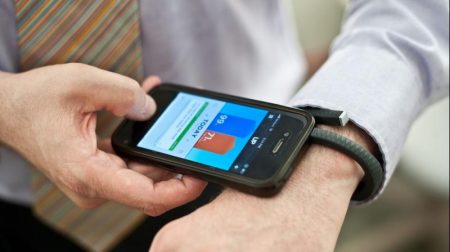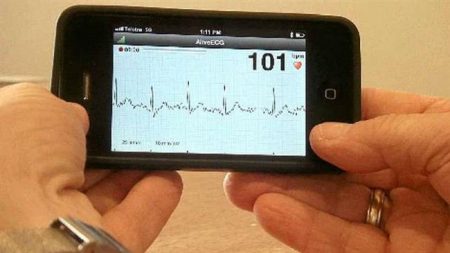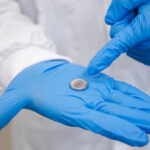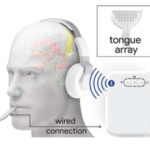September 2, 2016 – Finnish researchers have created a smartphone health app that uses the built-in accelerometer and gyroscope common to the technology to diagnose atrial fibrillation. Users of the app simply lie down and place the phone on their chest. The combination of built-in gyroscope and accelerometer acquires the heart signal and the data is then analyzed using auto-correlation and spectral entropy. A machine learning algorithm analyzes the data and indicates if atrial fibrillation is occurring. Initial testing of the app was done on 36 patients, 16 with chronic atrial fibrillation and 20 without. The results were 95% accurate.

Atrial fibrillation or A-Fib occurs in 2% of the population and causes seven million strokes globally per year. Pre-emptive diagnosis and treatment could eliminate 70% of these A-Fib-caused strokes.
Other ways to detect A-Fib include a visit to the doctor and being hooked up to an electrocardiogram or ECG. But an A-Fib event may not happen over the short duration of an office visit. Cardiologists today also can use a device called a holter monitor, which is portable and battery-powered. It is worn by the patient and involves attaching electrodes to the chest. Typically the patient uses the device for 24 to 48 hours while it records heart rhythm. There is no guarantee that during the period warn a holter monitor will capture an A-Fib event.
The use of a smartphone and app is a far simpler detection method. If a person is feeling odd and wants to check his or her cardiac status all they do is lie down with the phone placed on the chest. The app will provide a “yes” or “no” result in a matter of a minute.
Tero Koivisto, Vice-Director of the Technology Research Centre at University of Turku, Finland, and a lead author in the publication of the app study, states “this is a low cost, non-invasive way to detect atrial fibrillation that people can do themselves without any help from medical staff. Given the widespread use of smartphones, it has the potential to be used by large populations worldwide. In future, a secure cloud service could be created to store and analyze larger masses of data.”

















